Imagine a fungus that can infect an ant, take control of its behavior, and ultimately kill it. This might sound like a science fiction story, but it is actually a real phenomenon that occurs in nature. The fungus in question is called Ophiocordyceps unilateralis, and it specifically infects and kills ants.
The fungus infects the ant through spores that attach to the exoskeleton of the ant. Once the spores have attached, the fungus begins to grow inside the ant and eventually takes control of the ant’s behavior. The infected ant will leave its colony, and instead of foraging for food, it will climb to the top of a plant stem, where it attaches itself to a leaf and dies. After the ant dies, the fungus sprouts from the ant’s head and releases more spores to infect other ants.
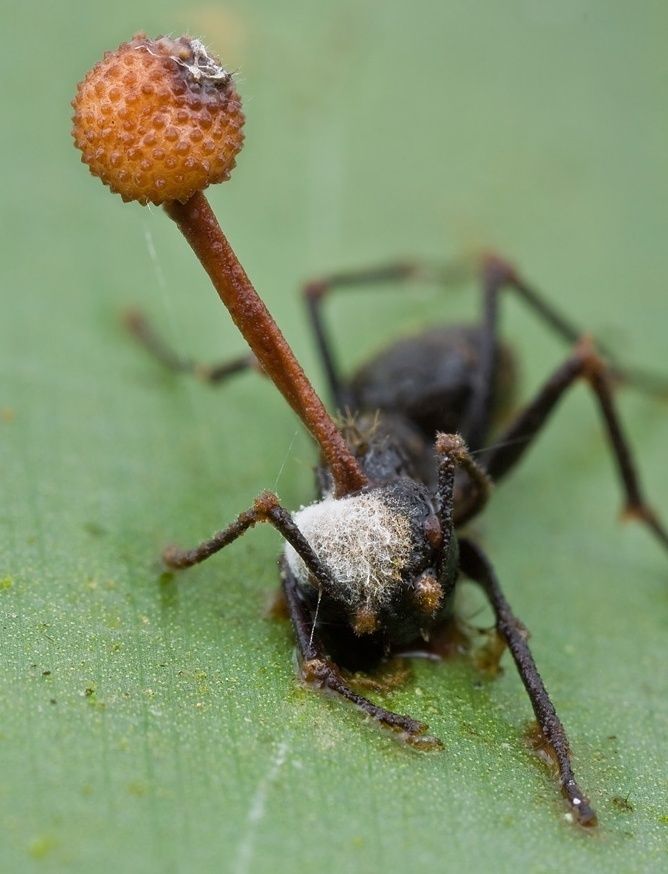
This process is known as “behavioral manipulation” and it is a common feature of many parasitic organisms. The fungus has evolved to manipulate the behavior of the ant in order to ensure its own reproduction.
It is also found that this fungus can also infect other insects such as termites, beetles, and flies.
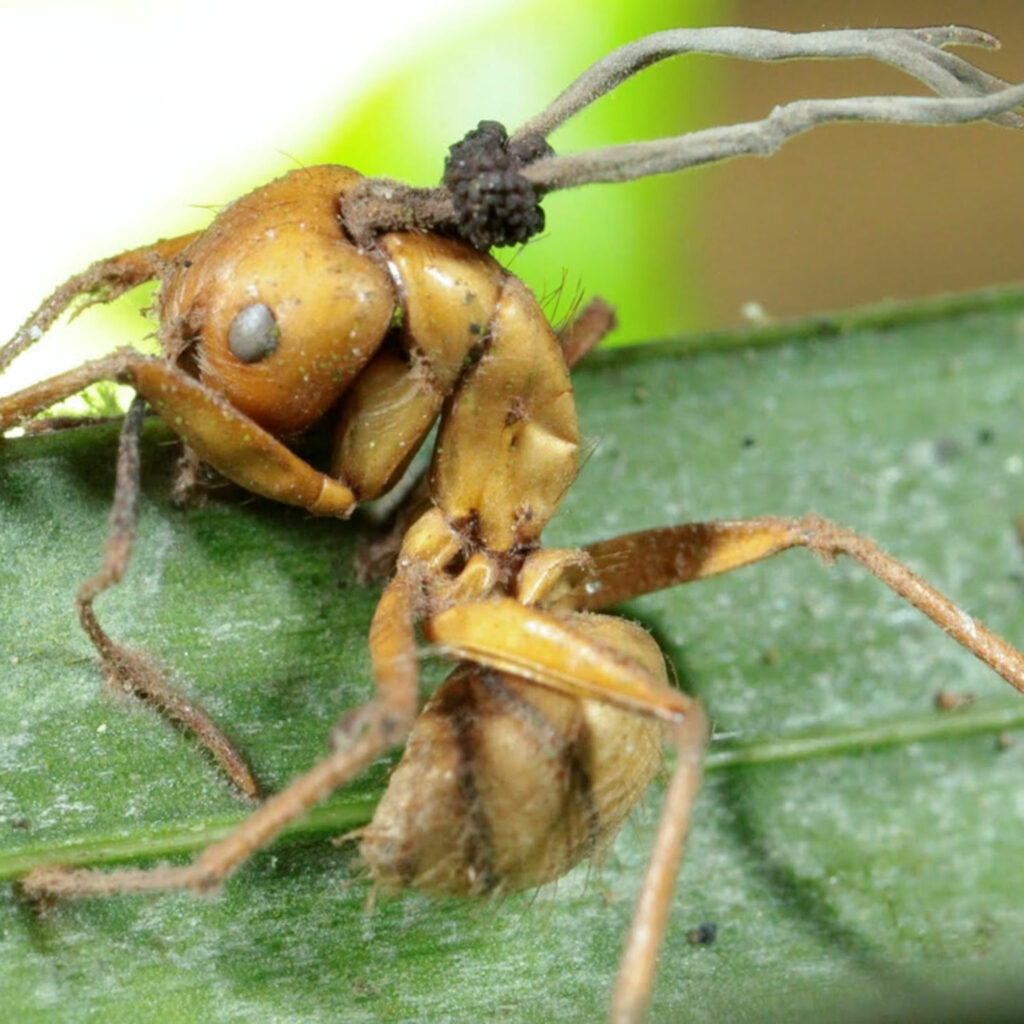
Research on this fungus is ongoing, as scientists are still trying to understand the mechanisms behind how the fungus is able to control the behavior of the ants. Understanding how the fungus manipulates the behavior of the ants could have implications for understanding how other parasitic organisms manipulate their hosts.
One possible explanation is that the fungus produces chemicals that alter the ant’s behavior. Another theory is that the fungus infects the ant’s brain and takes control of its nervous system. Regardless of the mechanism, it is clear that the fungus is able to manipulate the behavior of the ant in a way that ensures its own reproduction.
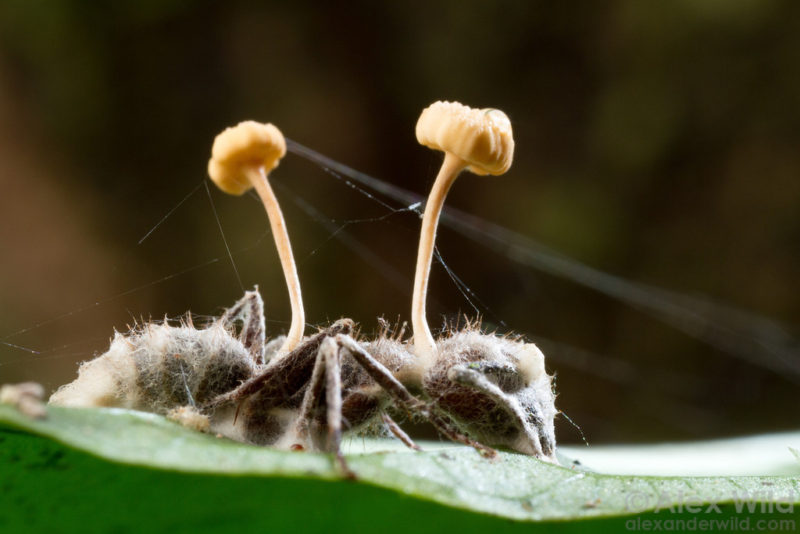
In addition to its ability to manipulate the behavior of ants, Ophiocordyceps unilateralis also has another unique characteristic. It is a specific host fungus, meaning that it only infects ants from certain species. This is quite different from many other parasitic organisms which have a wide range of host organisms they can infect.
The discovery of Ophiocordyceps unilateralis and its ability to manipulate the behavior of ants has led to a greater understanding of the complex relationships between parasitic organisms and their hosts. This fungus may also have potential applications in medicine and agriculture as a biological control agent.
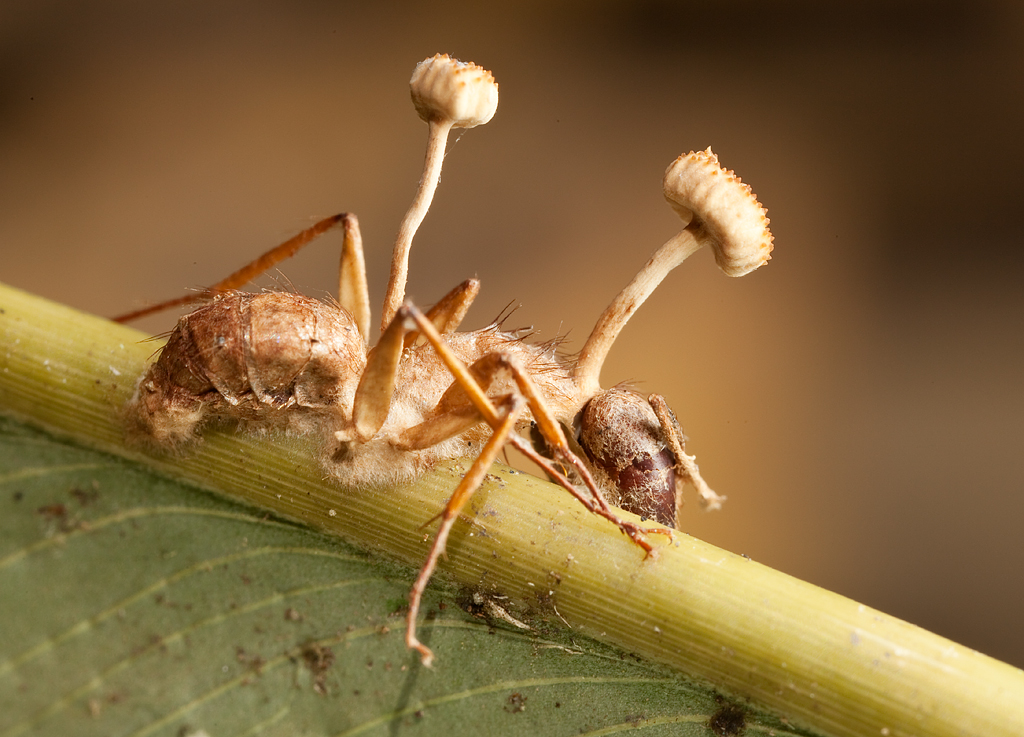
Overall, Ophiocordyceps unilateralis is a fascinating organism that has evolved to control the behavior of its host in order to ensure its own survival. Its unique characteristics and potential applications make it a subject of ongoing research and study.
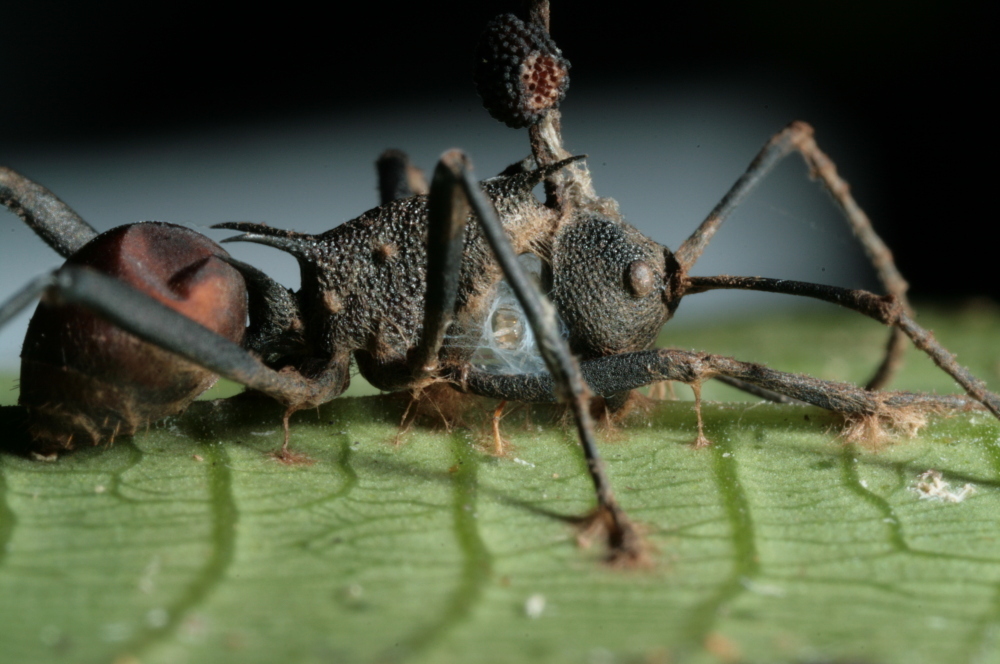 A zombie ant with the brain-manipulating fungus (Ophiocordyceps unilateralis s.l.) having been castrated by an hyperparasite fungus(white with yellow material).
A zombie ant with the brain-manipulating fungus (Ophiocordyceps unilateralis s.l.) having been castrated by an hyperparasite fungus(white with yellow material).
Ants can be killed by a type of fungus called Ophiocordyceps unilateralis. This fungus infects the ant and ultimately kills it by taking control of its behavior. The infected ant will leave its colony and climb to the top of a plant stem, where it attaches itself to the leaf and dies. The fungus then sprouts from the ant’s head and releases spores to infect other ants. This fungus is specific to ants and has evolved to manipulate the behavior of its host in order to ensure its own reproduction.





